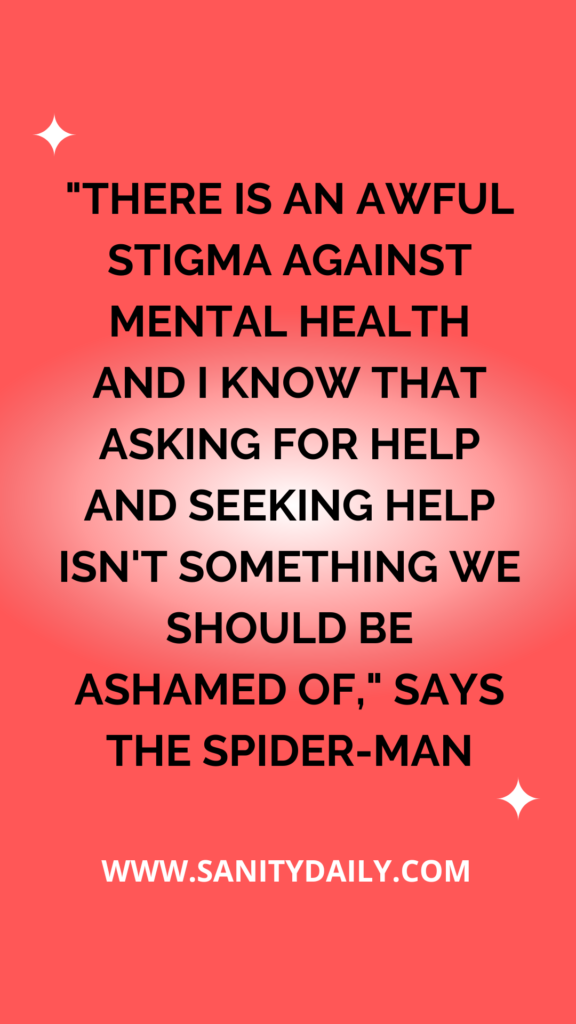Three in ten young people say they can’t quit or limit time on social media,
even if it improves their physical and mental health.
Young people are now three times more likely to connect with friends online than they are to meet up in person, according to a new survey by teenage mental health charity stem4 to mark Youth Mental Health Day (19 September).
But lack of social connections in the real world, and pressure to look and behave a certain way online, have left half (50%) of young people saying they lack social confidence, and that anxiety and fear of rejection are holding them back from making new friends.
Two-thirds (63%) of young people say they now go on social media every day to connect with friends. This is while just one in three (28%) meet up with friends in person daily, four in ten (39%) weekly, and one in five (23%) monthly.
Can you quit social media to protect your mental health and wellbeing?
On Sunday, 26-year-old actor Tom Holland announced he had taken a social media break as social media apps had become “detrimental” to him as he would continue to read things about himself online and “spiral”.
But unlike Tom, a third (32%) of the young people told the survey they are unable to limit or reduce the amount of time they spend online, even if it would mean achieving better overall physical and mental health.
“There is an awful stigma against mental health and I know that asking for help and seeking help isn’t something we should be ashamed of,” the Spider-Man actor added.
Of the 2,007 young people surveyed ahead of Youth Mental Health Day, nearly half (46%) say they are currently experiencing mental health difficulties, of which three in ten (30%) have not had the courage to ask for help. These difficulties are often compounded by feelings of loneliness (44%), being left out (39%), and isolation (33%) either all or most of the time. This has led many (44%), young people, to say they are struggling to make and maintain friendships.

Shining a light: Youth Mental Health Day, 19 September
stem4’s Youth Mental Health Day (YMHD) will this year take place on Monday 19 September, and the theme is #ConnectMeaningfully. Over the past few years, young people have had to experience many of their most formative experiences virtually—from joining a new school/college/university to celebrating a ‘big’ birthday.
Dr Nihara Krause, Consultant Clinical Psychologist and CEO and Founder of youth mental health charity stem4, commented:
“The impact of the pandemic on social connections has had a long-reaching effect. Social media can be a force for good, but what this survey finds is that there needs to be more balance in young people’s lives. Social media shouldn’t be used as a replacement for positive connections in the real world. What is positive from this survey, is that young people say they want to make meaningful relationships.
However, they are being held back by a fear of rejection and a lack of knowing how to make connections, particularly as they have missed out on two years of social experiences and of developing social confidence post-pandemic. We want to change this by encouraging everyone to provide young people with opportunities starting with YMHD. This includes having meaningful peer and family conversations.”
By focusing on the importance of meaningful connections and having a solid support system, this year’s YMHD will invite young people across the country to reflect on how their relationships (with family, friends, educators etc.) have changed over the past few years. stem4 has created a number of resources (including for educational establishments) and is asking everyone to share ideas and set goals of how young people can #ConnectMeaningfully, to ensure they are fostering relationships that will support and positively impact their mental health.”
As reported by Penny Lukats
About the young people’s survey
A Survey of 2,007 regionally representative young people aged from 12 to 21 was carried out Survey Goo between 15th and 19th July 2022
About stem4
stem4 is an award-winning charity that supports teenagers with their mental health. It provides evidence-based education, builds resilience, enhances motivation to change, and provides signposts to ensure early intervention and action. stem4 focuses on commonly occurring mental health issues in teenagers including eating disorders, anxiety, depression, self-harm and addiction.
The charity works with students, parents and teachers in secondary schools and colleges, and with health professionals such as GPs and school nurses through its conference programme and through its digitally delivered workshops suitable for PHSE in schools. stem4 is also included in the Royal College of GP toolkit.
■ stem4’s free, evidence-based, smartphone apps
With children and young people experiencing difficulty and long waiting times in accessing effective treatments, stem4 has developed four NHS-approved smartphone apps, all based on evidence-based strategies, to help young people in the treatment of and recovery from their mental health difficulties. These apps have been downloaded and used over 2 million times. These apps include
– Clear Fear, which uses the evidence-based treatment of Cognitive Behaviour Therapy (CBT) to help manage the symptoms of anxiety;
– Calm Harm, which uses the basic principles of evidence-based therapy, Dialectic Behaviour Therapy (DBT) to help manage the urge to self-harm;
– Move Mood, which uses Behavioural Activation Therapy to help improve low mood and manage the symptoms of depression;
– Combined Minds, uses a Strengths-Based approach that has been shown to be effective in recovery, providing practical strategies for families and friends to support teenage mental health.
For information on stem4’s Youth Mental Health Day please visit youthmentalhealthday.co.uk for stem4’s full range of downloadable resources or follow @stem4org on social media to keep up to date.








